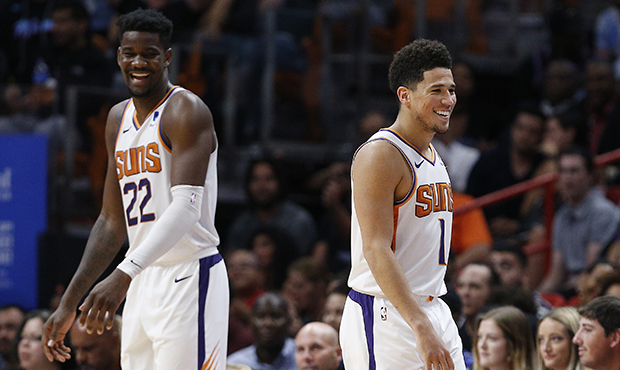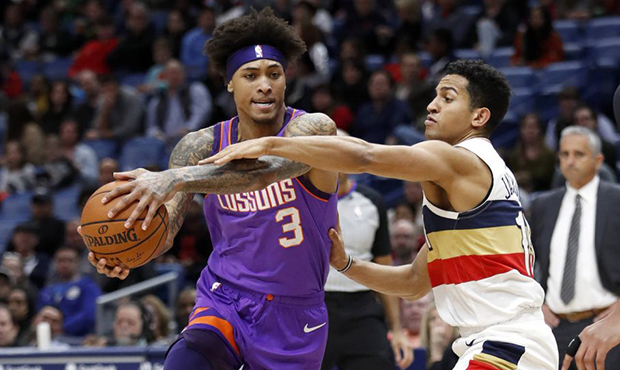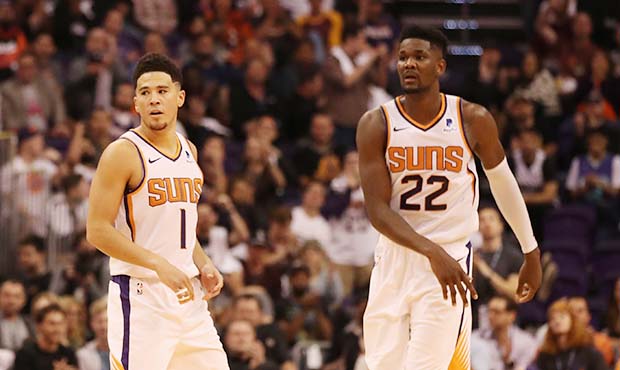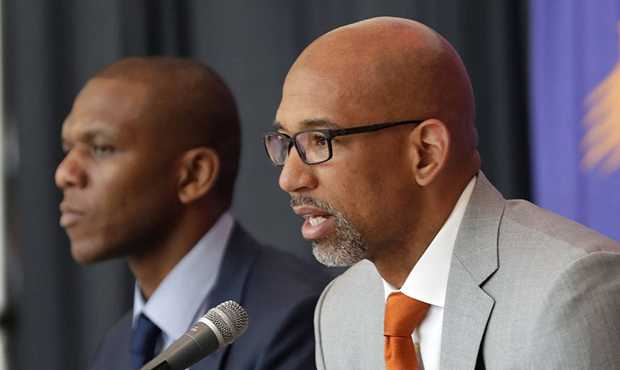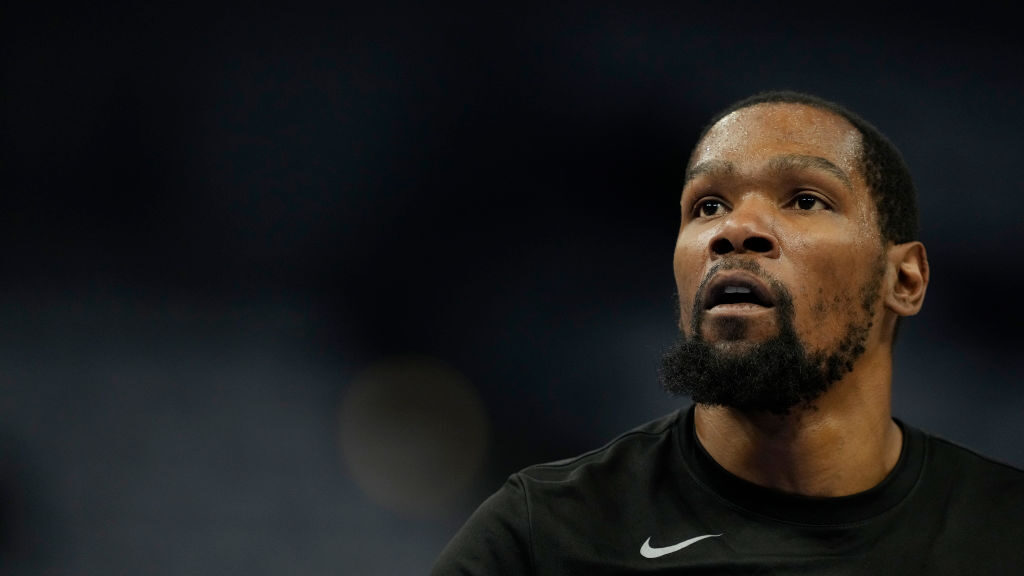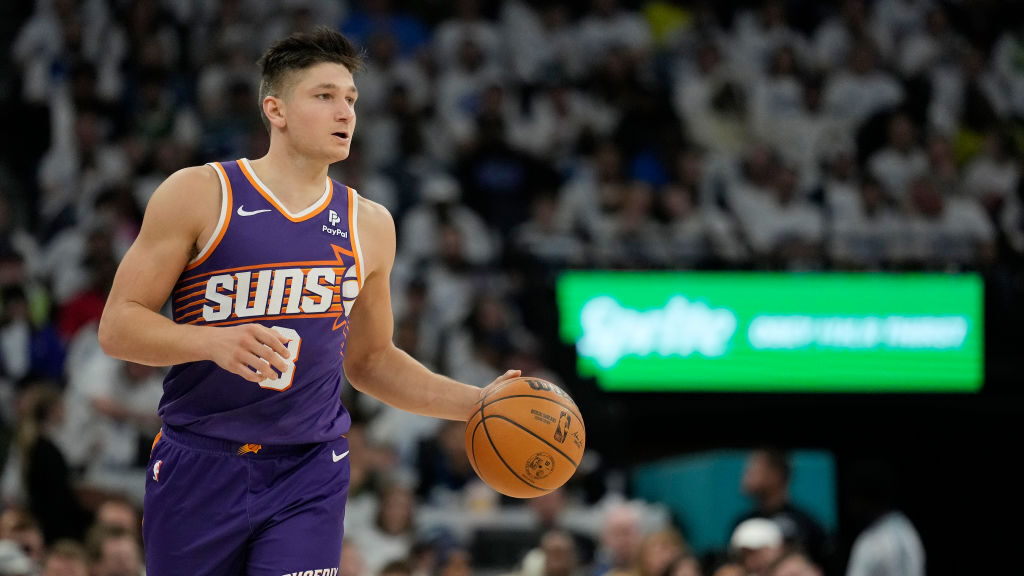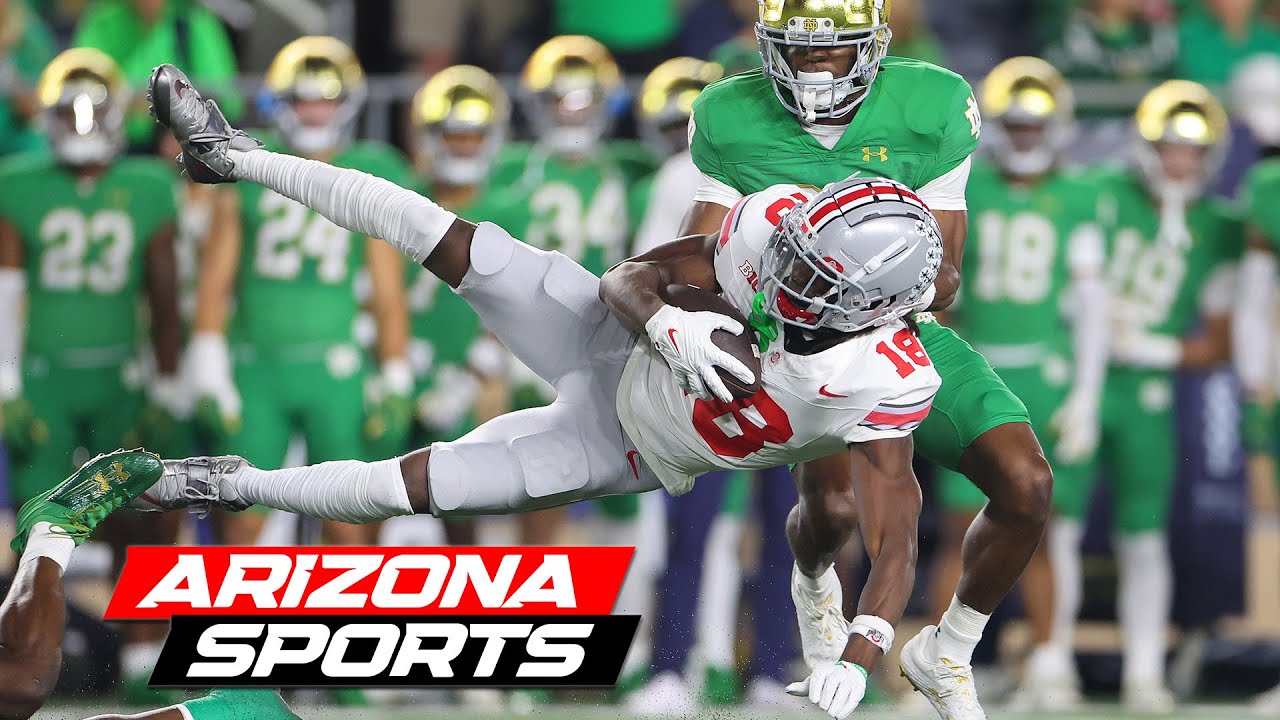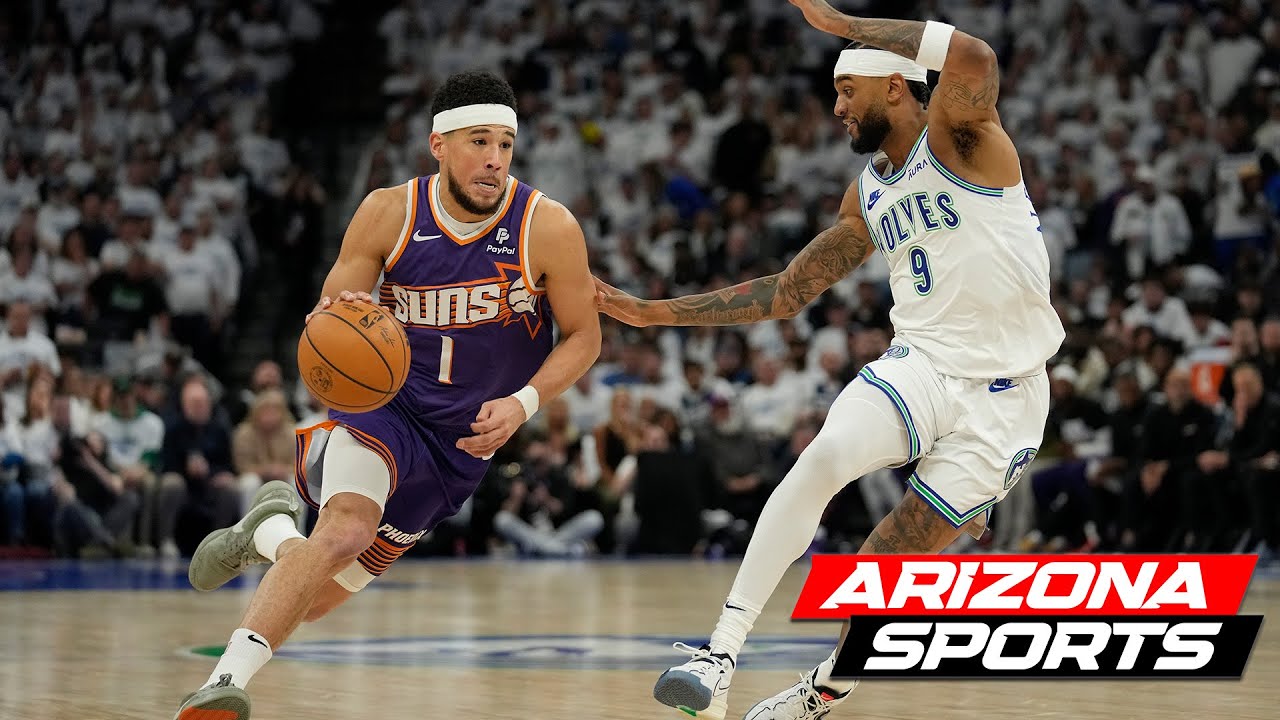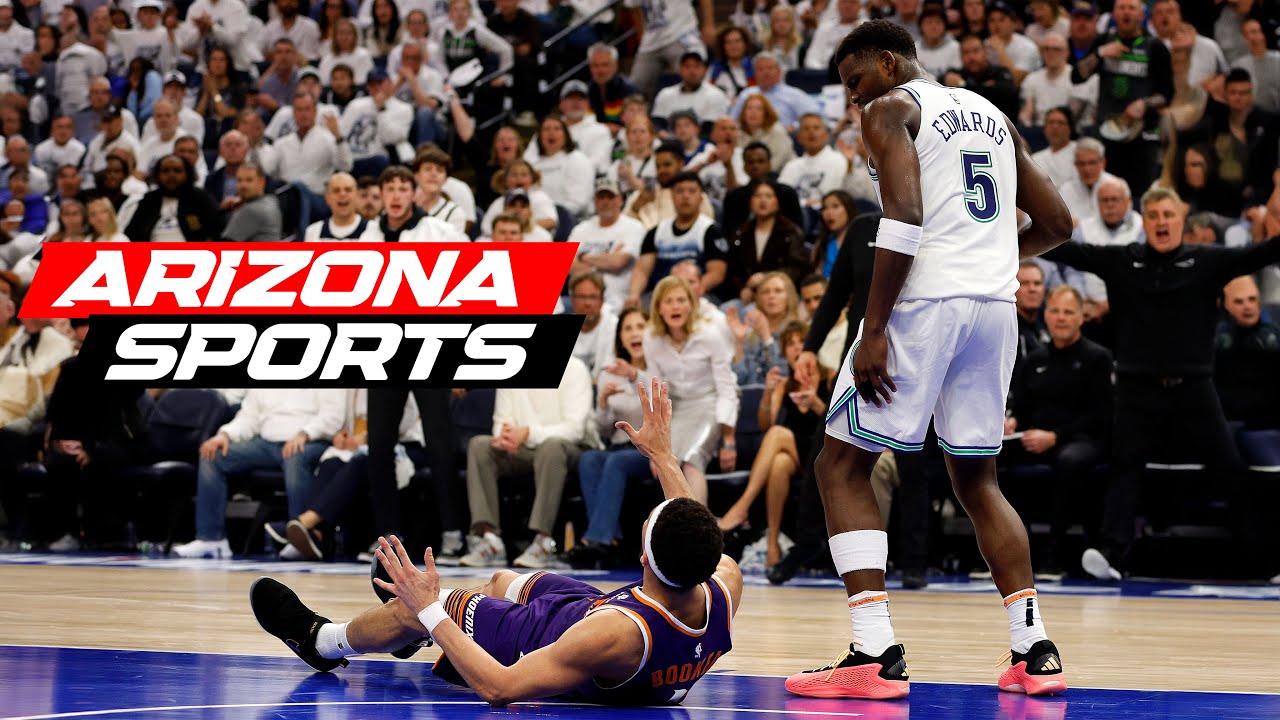GM Jones: Suns’ offseason trades were about fit, not talent retainment
Jul 16, 2019, 12:45 PM | Updated: Jul 18, 2019, 7:28 pm
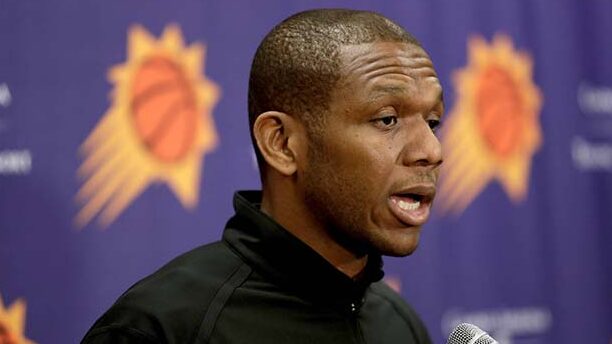
Phoenix Suns general manager James Jones speaks to the media regarding the firing of Suns head coach Igor Kokoskov, Wednesday, April 24, 2019, in Phoenix. (AP Photo/Matt York)
(AP Photo/Matt York)
It’s been clear that the Phoenix Suns front office led by general manager James Jones wanted to depart from the philosophies of Jones’ predecessor, Ryan McDonough, as quickly as possible.
Putting that monumental shift in words isn’t easy.
But in discussing two of the Suns’ heavily-criticized offseason moves Tuesday, Jones acknowledged the wake of skeptics he’s left this offseason while supporting his front office’s decision-making.
“I understand everyone has an opinion or idea of what they think we should do, of what value for a player or a position is, or picks,” Jones told Bickley & Marotta on 98.7 FM Arizona’s Sports Station. “That’s rightful criticism. But ultimately I think if they understand what we’re trying to do is build a team — and not collect or hoard assets or maximize individual transactions — and think about a collective return, I think they’d understand the deals that we’ve made were great deals for a team and helped us improve.”
On draft day, the Suns traded a 25-year-old and proven 18-point-per-game scorer in T.J. Warren, plus the 32nd pick in the 2019 NBA Draft, for cash.
Soon after, they moved from the No. 6 pick in the draft to No. 11, adding potential starting power forward Dario Saric from the Minnesota Timberwolves. Phoenix then used the T-Wolves pick to select North Carolina shooter Cam Johnson, which was widely viewed as a reach.
The Suns followed draft day by trading 2017 No. 4 pick Josh Jackson, backup point guard De’Anthony Melton and two second-round picks to Memphis for point guard Jevon Carter and the contract of Kyle Korver, who was waived. Four pieces — two of which project as NBA players — for a backup point guard who may not play seemed like a loss.
But Jones stands by the moves: Arguably it was addition by subtraction.
Jones said he could have done a better job communicating the team’s goals. Maybe that would have softened the criticism.
Phoenix viewed the losses this way: It used the open salary cap space to sign free agent point guard Ricky Rubio and re-sign forward Kelly Oubre Jr. to round out a starting unit around Devin Booker and Deandre Ayton.
“Every decision that we make, right or wrong, we have to make it with those two guys in mind, knowing the players they play with have to complement or help them or push them to be better,” Jones said.
Trading Warren and Jackson opened more nearly $18 million in salary next year alone.
“Our goal was to get a good player, a point guard. It was to preserve financial flexibility for the next few years, it was to increase the maturity of our team,” Jones said. “If you look at that (trade), Josh is a great talent, but he’s a young guy. If you look at T.J., T.J. is at a different place in his career. And at the small forward position, we have a lot of depth.
“We have Mikal (Bridges), we have Kelly, we have Cam, and whether or not (Warren would) be able to play and provide the punch that we need for him to feel appreciated and to excel, versus the opportunity for growth for the rest of our guys, it was a decision we had to make,” Jones added. “And when you couple that with the future money, it just became a decision we needed to make in the best interest of the team. That’s taking away nothing from those guys as players, but as a team those are the best transactions for us.”
Jones clearly didn’t agree with the McDonough-led front office.
McDonough pulled a quick rebuild after one summer on the job, trading for athleticism and talent by landing Eric Bledsoe, among others, to set Phoenix up for a 48-win season in 2014-15. But after that, from the Isaiah Thomas acquisition that caused a point guard squeeze to targeting talented-but-volatile personalities in the draft like Josh Jackson, things didn’t go the Suns’ way on the court.
Now, it’s clear Jones will sacrifice talent, athleticism and skill for fit. Based on the Suns’ records the past four years, he has a right to reevaluate how his team values basketball players.
“I think a lot of times people overemphasize talent,” Jones said. “They view talent in a bubble. I think we’ve had individual talent (in the past).
“I think for the first time in awhile we have collective talent, where the talent of our guys complements each other seamlessly.”


